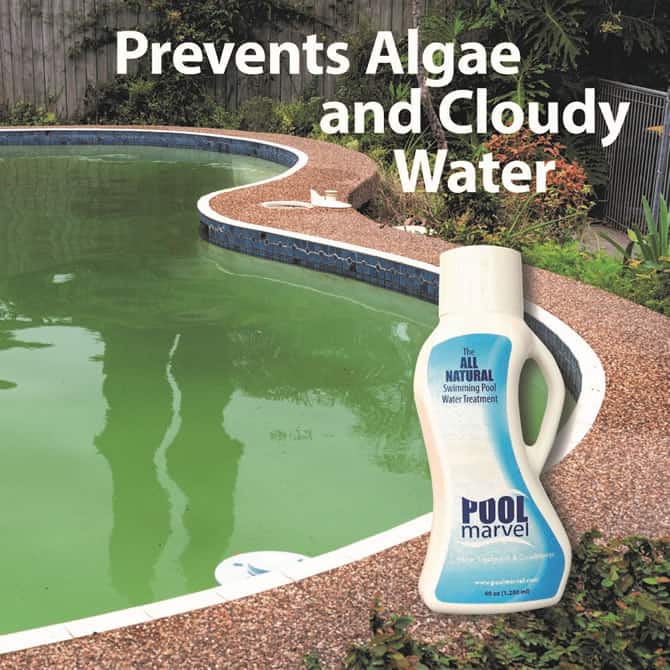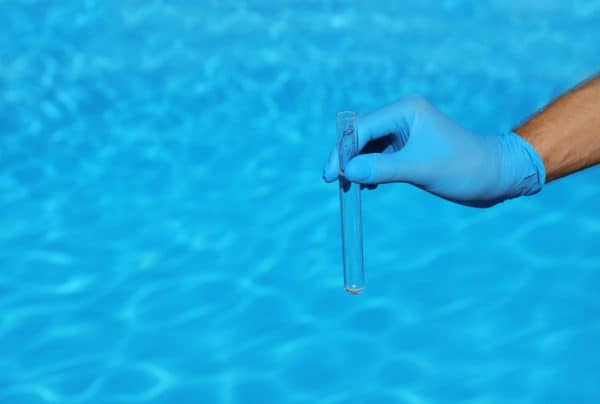
High Phosphates in Your Pool – Is it a Problem?
Owning a pool means you can enjoy swimming and basking in the sun in the comfort of your home. But it also means you’re responsible for preventing algae and dirty, unsanitary water. Phosphates and algae can be problems in pools, so it’s essential to maintain a careful balance to keep your pool clean and functional. Swimming pool phosphate test kits are sometimes recommended as part of a maintenance protocol. Still, you may be curious about what phosphates are and how they affect your water quality.
Do phosphates cause algae growth?
Unfortunately, there isn’t a simple answer. While phosphates and algae are related, phosphates’ presence doesn’t automatically mean a pool will grow algae. If you have high phosphates in your pool at levels above 1000 parts per billion and an algae problem, it can make the algae problem much worse. Algae feed off phosphates, so even if you address the algae, it releases more phosphates as it dies off. Chlorine is negatively affected by high phosphate levels. This can contribute to a more hospitable environment for algae growth. So in answer to the question, ‘do phosphates cause algae growth?’, other factors more directly cause algae to develop. Furthermore, algae can still grow even without the presence of phosphates.
What are phosphates?
Phosphates are phosphorus types that enter pool water through plant debris, fertilizer, dirt, swimmers, and newly added water. There are even phosphorus-based pool cleaners. Unless you have very high phosphates in your swimming pool or a pre-existing algae problem, they do not seriously affect your water quality.
How do you test for phosphates and algae?
An algae problem in your pool is generally pretty obvious to see because it causes green and cloudy pool water. Standard at-home pool testing kits analyze pH levels and chemicals like chlorine, but not necessarily phosphates. Suppose, however, you’re concerned about high phosphates in your pool. If so, you can buy a separate swimming pool phosphate test kit or take a sample of your water to a pool store or professional.
Should high phosphates in your swimming pool be removed?
Algae growth is a problem that needs to be addressed. Some pool professionals will tell you that you need to invest in a swimming pool phosphate remover to deal with it. But addressing potentially high phosphates in your pool alone is not going to take care of an algae problem. Before running out to buy a swimming pool phosphate remover, see if you can reduce algae bloom differently.
How do you address algae if phosphates aren’t the problem?
Some phosphates will be present in your pool no matter what, especially if it is outdoors. Swimming pool phosphate removers can be expensive, so you may not want to jump directly to that as a solution if you see algae. Before you worry about high phosphates in your pool, there are steps you can take to reduce and prevent algae growth.
- Keep a regular cleaning schedule
- Clean your filter to prevent buildup
- Don’t forget to empty your skimmer and pump baskets
- Remove any other dirt or debris missed by the filter or skimmer with a pool vacuum or net
- Use a product like Pool Marvel to prevent algae growth by creating an environment in which it cannot thrive
If you’re consistent with these steps, they’ll help prevent both algae and high phosphates in your swimming pool from building up.
Ultimately, unless you have unusually high phosphates in your pool and an algae problem, phosphates alone are not a serious issue. Instead of using swimming pool phosphate remover and focusing on that, the best way to ensure a clean pool is to stop algae growth with regular cleaning, maintenance, and preventative products.


